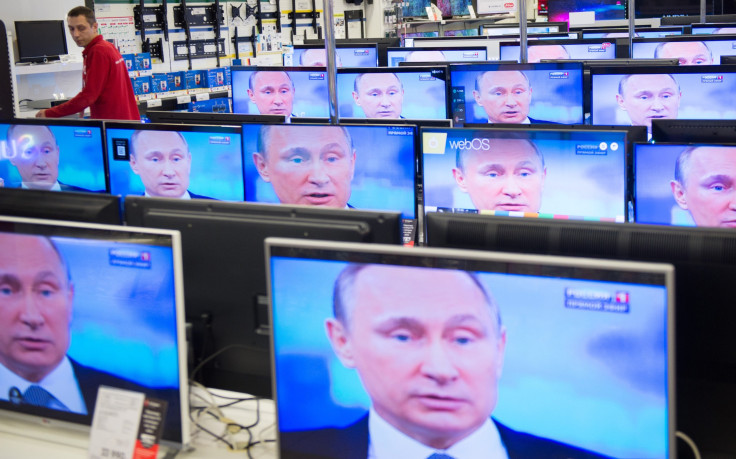How Russia's Media Covered Turkey Shooting Down A Russian Fighter Jet

Russian state-owned television portrayed Turkey on Tuesday evening news bulletins as a supporter of the Islamic State group that had been angered by Russia’s allegedly successful air campaign in Syria, while commentators expressed fear that the Kremlin's response could lead to Russian jets becoming entangled in dogfights with their Turkish counterparts. “There are many cases when a plane of one country violates the airspace of another country,” said a reporter on state-owned Channel One. “To shoot a plane down you have to want to shoot it down.”
Most state-owned Russian media stressed the Russian ground attack aircraft that was targeted had been flying over Syrian territory when it was shot down by Turkey Tuesday. They speculated over Turkey’s possible motivation for such an act of aggression.
The theories aired on state-owned channels concentrated on Turkey’s alleged support for the Islamic State group. Reports on Channel One’s headline evening news program hypothesized Turkey was taking revenge for Russia’s bombing of oil facilities run by ISIS that supply crude oil to Turkey -- and that Ankara was trying to wreck a coordinated Western and Russian campaign against ISIS in Syria.
“You can remember a whole mass of examples when Turkey has behaved like a prostitute -- and here is yet another,” former army general and Russian politician Alexander Rutskoi was quoted as saying by the Kremlin-friendly LifeNews website.
Channel One showed one analyst saying that Ankara was actively seeking to boost its international standing: “The inferiority complex of the Ottoman Empire has become very strong since the current Turkish leadership came to power.”
There were fears among commentators that Russia could opt for a military escalation with Turkey. “Further dogfights are possible during which Russian planes will attack Turkish planes in order to protect our bombers. Sea battles between the Turkish and Russian fleets are possible,” Pavel Felgenhauer, a military analyst, told the Dozhd television channel.
Others linked a possible escalation of the conflict with Putin’s original decision to begin military action in Syria. “A hot-headed response from the Russian authorities could lead to the development of an uncontrollable conflict with the most serious consequences up to and including military action between Turkey and Russia and, accordingly, Russia and NATO,” prominent historian Andrei Zubov wrote on the Open Russia news website. “We wrongly got mixed up in this venture and a denouement could come very quickly."
© Copyright IBTimes 2024. All rights reserved.












